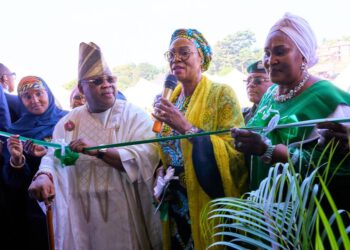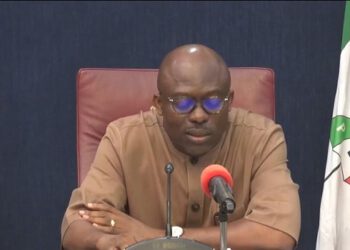…reveals how alleged accomplice ran mad in prison after severe torture by the police
Segun Olowookere, a teenager sentenced to death in Osun State for allegedly stealing fowls, has recounted his harrowing journey from arrest to death row, highlighting what he claims are grave injustices in his case.
Arrested at just 17 years old, his story has raised questions about the fairness of the justice system and the alleged brutality he faced while in police custody.
Olowookere was apprehended in November 2010 in Oyan, Odo-Otin Local Government of Osun State, alongside another suspect, Sunday Morakinyo.
The two were accused of robbing a policeman, Tope Balogun, of fowls and eggs, and later charged with additional counts of robbery involving other victims. Despite pleading not guilty, Olowookere allegedly made a confessional statement during police interrogation, which he now denies.
On December 17, 2014, Justice Jide Falola of the Osun State High Court sentenced both men to death for conspiracy to commit armed robbery, life imprisonment for robbery, and three years for stealing. By the time of the judgment, Olowookere was 21 years old.
In an exclusive interview with Sunday PUNCH, Olowookere recounted the events leading to his arrest and subsequent conviction, emphasizing that his ordeal began when he refused to flee after his father was detained by police officers demanding his whereabouts.
According to him, his name was mentioned by a group of young boys aged 12 and 13, who were initially arrested for the theft. Despite denying any involvement, he claimed he was tortured to force a confession.
“The children accused of the theft were released, but Morakinyo and I were not,” he said. “We were brutally tortured by the police, who demanded I admit to being the leader of the gang. They even presented the cutlasses we used to clear the station premises as evidence of armed robbery when we were handed over to SARS.”
Olowookere revealed that his father’s inability to pay the N30,000 bail demanded by the police further sealed his fate. “My father raised N20,000, but before he could return with the rest, we had been transferred to SARS in Osogbo,” he explained.
The most shocking aspect of Olowookere’s narrative was the condition of his co-accused, Morakinyo, who allegedly developed mental health issues due to the severe torture inflicted during detention. “Morakinyo bled from his ears, nose, and anus due to the beatings,” Olowookere said. “Despite his deteriorating state, he was never treated. By the time we got to the custodial center, his mental health had completely failed. He doesn’t even recognize anyone anymore.”
Olowookere’s account also highlights inconsistencies in the case, including a statement made by his uncle—owner of the poultry farm in question—during a family meeting where he allegedly exonerated Olowookere, only to later testify against him in court.
While serving his sentence, Olowookere has been working with medical personnel at the custodial center in pursuit of his dream of becoming a doctor, despite financial constraints preventing him from enrolling in formal studies. “I pray to God for freedom to prove my innocence and fulfill my dream of contributing positively to society,” he said.
Olowookere’s story underscores the complexities of Nigeria’s criminal justice system and raises serious concerns about the treatment of suspects, particularly juveniles, in police custody.





















